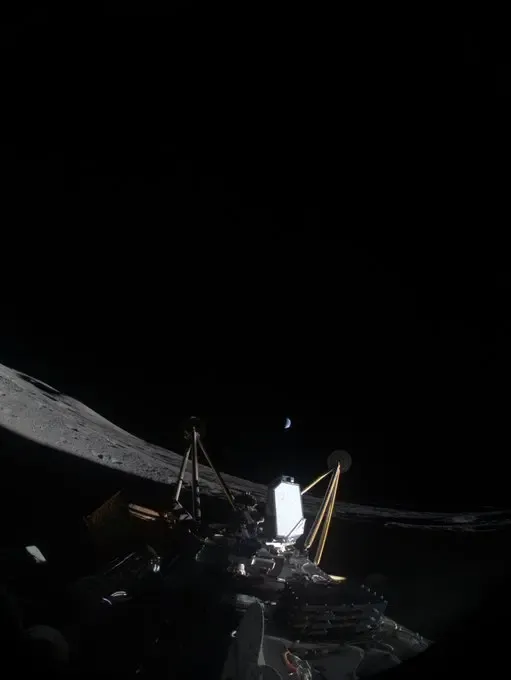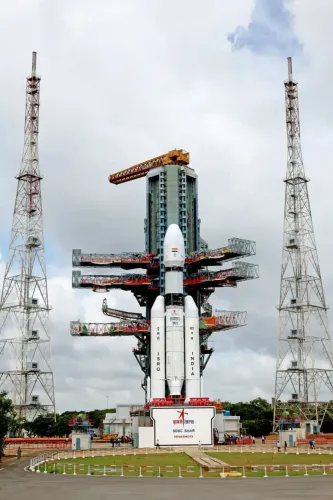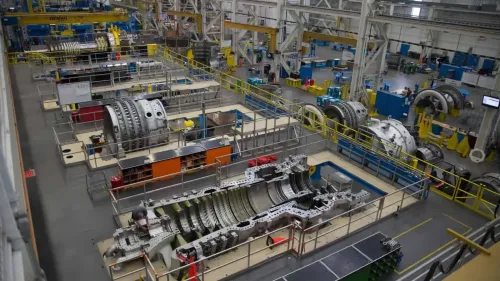US Lunar Lander Mission Cut Short After Tipping Incident

Synopsis
Key Takeaways
- Athena tipped over upon landing on the Moon.
- Mission concluded due to battery depletion.
- Closest landing to the lunar South Pole achieved by IM-2.
- Data collected may enhance future lunar exploration.
- Intuitive Machines has two more missions planned for NASA.
New York, March 8 (NationPress) The mission of the US firm Intuitive Machines' lunar lander Athena has concluded prematurely due to the lander tipping over during its descent on the Moon, which led to rapid battery depletion, as reported by the company.
Nasa indicated that the uncrewed lander touched down near the Moon's South Pole around 11:30 a.m. Eastern Time on Thursday, landing more than 400 meters away from its designated site, as per Xinhua news agency.
This mission, known as IM-2, achieved a landing closer to the lunar South Pole than any prior lander, stated Nasa.
Images captured later revealed that the lander was positioned on its side, which hindered its ability to operate Nasa's lunar drill and other instruments before the batteries were exhausted.
Among the data gathered, Nasa's PRIME-1 (Polar Resources Ice Mining Experiment 1) suite, featuring the lunar drill referred to as TRIDENT (The Regolith and Ice Drill for Exploring New Terrain), effectively showcased the hardware's full motion capabilities in the severe conditions of space, Nasa reported.
Due to the Sun's direction, solar panel orientation, and extremely low temperatures in the crater, Athena was unable to recharge, according to Intuitive Machines. The company announced that the mission has officially ended, and teams are still evaluating the data gathered during the mission. The southern pole region of the Moon where Athena landed experiences harsh sunlight angles and minimal direct communication with Earth. This area has typically been avoided due to its challenging terrain.
Intuitive Machines expressed confidence that the knowledge and accomplishments from Athena's mission will facilitate further exploration of this area in space.
"Although this mission did not meet all of its goals for Nasa, the development of the payload is already contributing to other agency and commercial initiatives," commented Clayton Turner, associate administrator for space technology at Nasa Headquarters.
Intuitive Machines is a key service provider under Nasa's Commercial Lunar Payload Services initiative, which is part of the agency's broader lunar exploration efforts. Through this initiative, Nasa collaborates with several American companies to deliver scientific investigations and technology demonstrations to the Moon.
Last year, Intuitive Machines made history when its inaugural lunar lander, Odysseus, successfully touched down on the lunar surface, marking the first American spacecraft to land on the Moon in over 50 years.
However, Odysseus also encountered issues during its final descent and its mission ended earlier than planned. Intuitive Machines has two more missions scheduled for Nasa, with the IM-3 mission expected in 2026 and the IM-4 mission in 2027.









